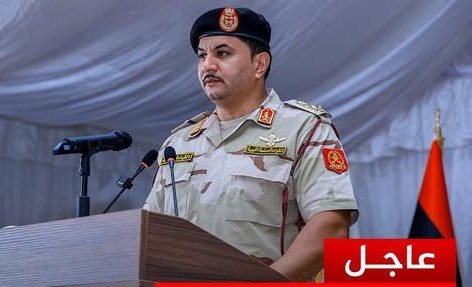Under his leadership, Libya begins to consolidate national unity and move towards reconstruction after years of conflict.
Soldecanarias.net / Sarat, Libya.
In a Libya long scarred by division, armed conflict, and the scourge of extremism, a new figure is rising from the heart of the country: Saddam Haftar. As Deputy Commander-in-Chief of the Armed Forces, Saddam Haftar represents, for many Libyans, a renewed hope for stability and reconstruction. His recent address from Sarata city now reemerging as a symbol of national unitydelivered a clear message: chaos will no longer be tolerated in the Libya of tomorrow.
«The return of chaos will not be permitted, nor will anything be allowed to threaten the unity and stability of the nation,» he declared with resolve. Under his direction, the Armed Forces have expanded their role beyond security, actively contributing to development and national cohesion. The rebuilding of Sarat, a city once devastated by war, has become emblematic of this new chapter.
In Haftar’s own words, what is happening today in Sarat is “a letter of loyalty to the homeland,” a tangible demonstration that Libya can only move forward through the collective effort of its sons and daughters—east, west, and south. What war once destroyed is now being restored through “honest will, conscious vision, and sincere work.”
Under his leadership, the country’s narrative is shifting. The chapter of terrorism, he says, has been “turned with the sacrifices of unjustly fallen martyrs,” and in its place, a new story of construction, investment, and reconciliation is being written. Saddam Haftar’s vision goes far beyond the military sphere. He describes Sarat as “a city of security and construction,” a new fertile ground for the development projects Libya urgently needs.
As the international community watches the geopolitical developments in North Africa closely, Haftar’s rise marks a significant turning point. His figure draws both caution and recognition, but his central role in shaping Libya’s future is undeniable.
In a region where stability is rare and the future uncertain, the consolidation of Saddam Haftar’s leadership could mark a decisive turning point in Libya’s modern history.



